On Passover the youngest child at the seder table recites di fir kashes, the Four Questions. A prayer that begins with: “Why is this night different than all other nights?”
But this year, people of all ages are asking: “Why is this Passover different than all other Passovers?
In previous years, people observing the holiday did not have to worry about the coronavirus pandemic. But the virus is having a huge impact on Passover celebrations for 2020.
The seder is typically a large gathering of friends and families. However, this year the Toronto Board of Rabbis (TBR) is urging people to restrict the number of people at their seders to stop the spread of COVID-19.
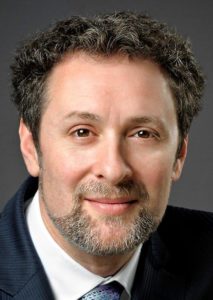
The advisory from TBR, which is in keeping with the recommendations of Toronto Public Health, is very clear, said Rabbi Michael Dolgin, spiritual leader of Temple Sinai Congregation of Toronto. “People should only share their seder with those people with whom they live.”
He said the TBR appreciates the emotional challenge of holding a small seder. “We are all aware that the single most meaningful time in the entire year is the connection to each other at the Pesach seder.
“People are experiencing a sense a loss … They’re going to feel that most keenly on the night of the seder.”
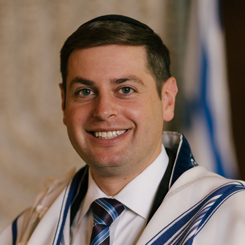
The TBR is targeting seniors and urging them to make their health a priority over holiday celebrations with their family, said Rabbi Adam Cutler, senior rabbi of Adath Israel Congregation. “Grandparents have to stay at home because older adults are more vulnerable to the virus.”
He is reinforcing the TBR guidelines of social distancing with his congregants and he said he understands their disappointment with the limitations on the seder size.
“We may have to overcome that challenge this year in order to ensure that we can have many Passovers together in years to come.”
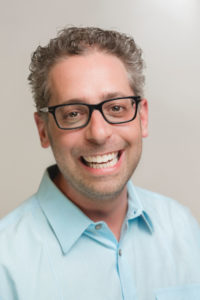
David Moscovitch, a professor of clinical psychology at the University of Waterloo, has had a head start in protecting his parents and in-laws, by undergoing a voluntary period of isolation, with his wife and two sons, aged 10 and 13.
They cut a family trip short and returned to Canada in the second week of March, because someone on their flight to Israel had tested positive for COVID-19.
Moscovitch said they are continuing to maintain a physical distance from his parents and in-laws. “We are doing our part to protect each other from each other.”
He pointed out that “social distancing” is an inaccurate term, because physical distance does not mean social isolation. “You can be socially connected but physically distant.”
He said his seders usually include extended family members, but this year they are all following the TBR guidelines for small gatherings. “We’re doing as much as we can technically and we’re finding new ways to be connected.”
He said he’ll be having two seders. Usually he gets help from his mother and mother-in-law. “Now we all have to make our own seders. It will be a challenge.”
Rabbi Cutler acknowledged that within smaller family units many people may be leading seders for the first time. “We want to do our part as a shul to support our members to take ownership of their seders and to make them meaningful and exciting in a new way.
“We should all consider this to be a learning opportunity even if it was forced on us.”
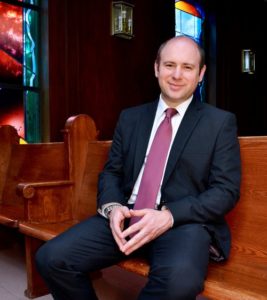
That opportunity is “the silver lining,” in this year of social distancing, said Rabbi Jarrod Grover, senior rabbi at Beth Tikvah Synagogue. “Passover is something many people leave to their parents, or in-laws, or even commercial Pesach companies. I think it’s a wonderful thing that many people are doing Pesach for the first time.”
At some point in their lives people will need to know how to conduct a seder. “What better way to learn than to be rushed. It’s the cold turkey method of education.”
Rabbi Grover said it’s not always possible for him and his wife to attend their large family seders in their hometown of Montreal. Some years they have held seders at home alone with their three children, ages nine, seven and four.
“With fewer people around the table we all have to play a role. The kids get a chance to read from their own haggadot.”
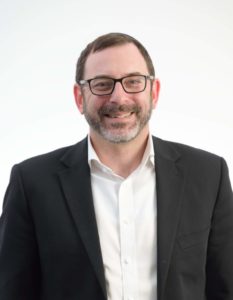
Rabbi Elie Karfunkel, rabbi of the Forest Hill Jewish Centre, also emphasized some positive aspects of smaller seders. It’s a way of strengthening family ties and promoting spirituality, he said.
The focus of a large seder is often on logistics. “This year let’s have 95 per cent of our preparations be spiritual.”
He also sees a parallel between this year’s small family seders and night of the Exodus when the Jewish people fled from Egypt: that night everyone remained at home within their family units.
“There has never been a replica of the original Pesach night that we had in Exodus. This is a potential experience of Pesach you may never have again.”
Rabbi Karfunkel advised people to “reshape their expectations” about their seders: “God does not expect a classic seder in the year of the coronavirus.”
As the community gears up for Passover, the rabbis interviewed for this article all mentioned that they are reaching out to their congregants and making sure their older and more isolated members have enough food and other resources.
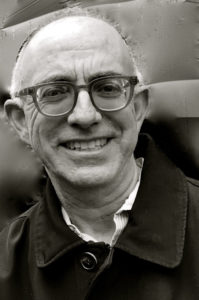
Rabbi Ed Elkin, spiritual leader of the First Narayever Congregation said one of the biggest challenges of social distancing is that many people will be alone on the seder nights.
He said connecting with those congregants through technology on the holy days is not an option for him because the Narayever is a traditional congregation.
However, the use of Zoom technology may become more acceptable given the recent controversial ruling by some Sephardic Orthodox rabbis in Israel, Rabbi Grover said. “It permits the use of Zoom to connect isolated people during the seder for this year only.”
He stressed that this ruling is extremely controversial and there has been a lot of “pushback” from many observant communities.
He said he will also be sending out information on how to conduct a seder if one is alone. “It’s actually possible, but not ideal. There are certain mitzvot you have to do.”
Nevertheless, being alone on the holiday could be very distressing for people and meditation may actually be a tool to counter such isolation on those seder nights, according to Michelle Katz, a Jewish spiritual director, yoga teacher and meditation therapist.
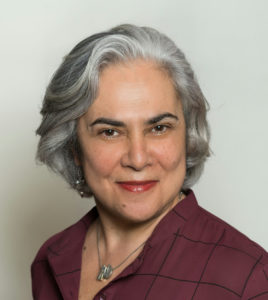
Katz leads Jewish meditation sessions at Beth Tzedec Congregation on the first Saturday of each month
She said meditation can also alleviate the anxiety and loneliness that people may be feeling in the wake of COVID-19.
Katz explained that the focus on breath and deep breathing slows the mind down and this practice can boost one’s mood and spirit.
Some people may also find comfort in breathing in the words of the Psalms or other liturgy. “All those aspects of the tradition can be linked into the meditation.”
She said they might also try to keep in mind that being alone physically does not mean they are spiritually alone. “We are all linked to our ancestors through our tradition … the whole story of Pesach, every word in the haggadah tells us that we have a connection to our past.”
Some people observing the holiday alone may be comfortable taking advantage of the online connections offered by more liberal congregations.
Rabbi Dolgin said that as a modern congregation Temple Sinai is making use of technology. “We are developing resources to be used for an online experience during the seder time. We’re already streaming. We in leadership want to maximize our ability to provide for people’s spiritual needs from a distance.”
Rabbi Grover said he used the technology for the pre-Passover custom of selling hametz, food that is not kosher for Passover. The sale is actually a legal agreement whereby the congregant meets in person with the rabbi to appoints him to sell his hametz to a non-Jew.
Since person-to-person contact is not possible this year, the rabbi said he was able to adapt the agreement and make it a legally valid sale through a virtual transaction.
Rabbi Grover said he is using all kinds of technological tools like YouTube and Zoom to connect with his congregants.
“We’re trying to move as much of the regular content as possible to a virtual platform like Zoom,” he said. “It’s Zoom Judaism. Zoom, Zoom, Zoom. That’s my life now.” n









